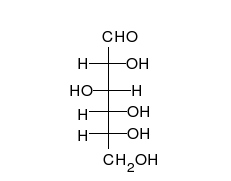Glycogen storage disease type IX
Editor-In-Chief: Prab R Tumpati, MD
Obesity, Sleep & Internal medicine
Founder, WikiMD Wellnesspedia &
W8MD medical weight loss NYC and sleep center NYC
| Glycogen storage disease type IX | |
|---|---|

| |
| Synonyms | GSD IX |
| Pronounce | |
| Specialty | Endocrinology, Genetics |
| Symptoms | Hypoglycemia, hepatomegaly, growth retardation |
| Complications | N/A |
| Onset | Infancy or childhood |
| Duration | Chronic |
| Types | N/A |
| Causes | Genetic mutation in PHKA2, PHKB, or PHKG2 genes |
| Risks | Family history |
| Diagnosis | Genetic testing, liver biopsy |
| Differential diagnosis | Glycogen storage disease type VI, Glycogen storage disease type III |
| Prevention | N/A |
| Treatment | Dietary management, cornstarch therapy |
| Medication | |
| Prognosis | Generally good with treatment |
| Frequency | 1 in 100,000 |
| Deaths | Rare |
Glycogen storage disease type IX (GSD IX) is a metabolic disorder that results from a deficiency of an enzyme involved in glycogen synthesis. This disease is part of a larger group of diseases known as Glycogen storage diseases.
Symptoms[edit | edit source]
The symptoms of GSD IX typically appear in early childhood and can vary in severity. Common symptoms include hepatomegaly (enlarged liver), hypoglycemia (low blood sugar), ketosis (excess of ketone bodies in the body), hyperlipidemia (high levels of fats in the blood), and growth retardation. Some individuals may also have xanthomas (fatty deposits under the skin) due to high levels of fats in the blood.
Causes[edit | edit source]
GSD IX is caused by mutations in the PHKA2, PHKB, and PHKG2 genes. These genes provide instructions for making different subunits of the phosphorylase kinase enzyme, which is involved in the breakdown of glycogen. Mutations in these genes reduce the activity of this enzyme, preventing the normal breakdown of glycogen and leading to the symptoms of GSD IX.
Diagnosis[edit | edit source]
The diagnosis of GSD IX is based on the clinical symptoms, laboratory findings (including abnormal liver function tests and low blood sugar), and confirmed by genetic testing. A liver biopsy may also be performed to examine the amount and structure of glycogen in the liver.
Treatment[edit | edit source]
There is no cure for GSD IX. Treatment is focused on managing the symptoms and preventing complications. This may include a high-protein diet to prevent low blood sugar, medications to control high levels of fats in the blood, and regular monitoring of liver function.
Prognosis[edit | edit source]
The prognosis for individuals with GSD IX varies. Some individuals have mild symptoms and normal growth and development, while others may have severe symptoms and complications such as liver disease.
See also[edit | edit source]
- Glycogen storage disease
- Metabolic disorders
- Hepatomegaly
- Hypoglycemia
- Ketosis
- Hyperlipidemia
- Xanthomas
References[edit | edit source]
Search WikiMD
Ad.Tired of being Overweight? Try W8MD's NYC physician weight loss.
Semaglutide (Ozempic / Wegovy and Tirzepatide (Mounjaro / Zepbound) available. Call 718 946 5500.
Advertise on WikiMD
|
WikiMD's Wellness Encyclopedia |
| Let Food Be Thy Medicine Medicine Thy Food - Hippocrates |
Translate this page: - East Asian
中文,
日本,
한국어,
South Asian
हिन्दी,
தமிழ்,
తెలుగు,
Urdu,
ಕನ್ನಡ,
Southeast Asian
Indonesian,
Vietnamese,
Thai,
မြန်မာဘာသာ,
বাংলা
European
español,
Deutsch,
français,
Greek,
português do Brasil,
polski,
română,
русский,
Nederlands,
norsk,
svenska,
suomi,
Italian
Middle Eastern & African
عربى,
Turkish,
Persian,
Hebrew,
Afrikaans,
isiZulu,
Kiswahili,
Other
Bulgarian,
Hungarian,
Czech,
Swedish,
മലയാളം,
मराठी,
ਪੰਜਾਬੀ,
ગુજરાતી,
Portuguese,
Ukrainian
Medical Disclaimer: WikiMD is not a substitute for professional medical advice. The information on WikiMD is provided as an information resource only, may be incorrect, outdated or misleading, and is not to be used or relied on for any diagnostic or treatment purposes. Please consult your health care provider before making any healthcare decisions or for guidance about a specific medical condition. WikiMD expressly disclaims responsibility, and shall have no liability, for any damages, loss, injury, or liability whatsoever suffered as a result of your reliance on the information contained in this site. By visiting this site you agree to the foregoing terms and conditions, which may from time to time be changed or supplemented by WikiMD. If you do not agree to the foregoing terms and conditions, you should not enter or use this site. See full disclaimer.
Credits:Most images are courtesy of Wikimedia commons, and templates, categories Wikipedia, licensed under CC BY SA or similar.
Contributors: Prab R. Tumpati, MD



